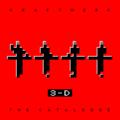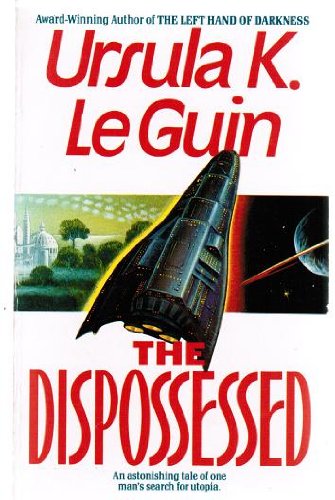Imaginative political sci-fi
4 stars
Content warning spoiler review of The Dispossessed
Ursula K. Le Guin's The Dispossessed tells the story of the physicist Shevek across two planets: Anarres, a desert moon inhabited by anarchists, and Urras, a verdant paradise inhabited by the capitalists, communists, and authoritarian states of Le Guin's day. After a long career on Anarres, Shevek goes to Urras, against the wishes of many on his home planet in order to complete a theory of time and publish it. Chapters alternate between Shevek's upbringing on Anarres and his residency in Urras, and tell a parallel story of how he came to be a revolutionary on both planets. On Anarres, he finds himself struggling against cultural norms, and the influence of respected members of its large trade syndicates, before founding the Syndicate of Initiative, subverting those things and providing a platform for misfits. On Urras, he finds himself first co-opted by the capitalist, or "propertarian", peoples who want his theories in order to build weapons, but manages to escape and join a revolutionary movement, share his theory to many planets, and return home.
Some would classify Anarres as a vision of a utopian anarchist society, but I think this is only half true. Le Guin describes both planets in her story equally in romantic and ugly terms, not favoring either planet. One thing Le Guin does wonderfully well - which I think will actually have an ideological impact on me - is depict both anarchist and capitalist societies with nuance and imagination. In the case of Anarres, she manages to get around the surface-level problems of anarchism and find deeper ones - the people respond to violence without granting a monopoly on it, manage their commons in an egalitarian way, and when a drought comes they all struggle together; yet those entrusted with responsibility misuse it as a form of power, social reform stagnates and social problems go unchallenged, and dissidents against social norms are threatened just as dissidents against the law. In the end, Le Guin seems to conclude that the utopian project does not end with the dissolution of government, but that a revolutionary element is perpetually needed to push societies to be better.
What keeps this book from a five-star rating is its lack of excitement; the first two thirds of the book serve more as worldbuilding than action. I'm glad I stuck it out til the end, where all the setup pays off with exciting ideas and tense conflicts. Don't go in expecting a thrill ride, but expect to be enriched nonetheless.

